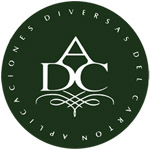Pretty Girls Undress N8ked: A Deep Dive into the Controversy
In recent times, the term «N8ked» has surged in popularity, especially within online communities. It captures attention not only due to its suggestive nature but also because of the ethical debates surrounding it. This article aims to explore the implications of the N8ked phenomenon, particularly focusing on how it intersects with the concept of privacy, consent, and technology.
The Rise of N8ked Content
As technology progresses, so do the ways in which we engage with digital content. The N8ked trend is part of a larger movement towards revealing content, often involving images and videos of individuals in compromising situations. This phenomenon raises significant questions about consent and the portrayal of individuals, especially women.
Understanding the Appeal
Why do people gravitate towards N8ked content? The answer lies in a mix of curiosity, societal norms, and the allure of the forbidden. Many viewers are drawn to the idea of seeing someone undressed, which is often linked to a sense of intimacy or connection, even if it’s digital. This desire can be traced back through history, where nudity has been a symbol of beauty, freedom, and exploration.
The Role of Technology
With the advent of advanced technology, the creation and distribution of N8ked content have become easier than ever. Apps and websites that allow users to manipulate images or create deepfake content have sparked a heated debate about authenticity and ethics. While some argue that these technologies enable creativity, others see them as tools for exploitation.
The Ethical Dilemma of N8ked Content
As enticing as N8ked content may be, it often exists within a murky ethical landscape. The controversy surrounding platforms that facilitate such content is multifaceted, involving issues of consent, exploitation, and the potential for harm.
Consent and Privacy
One of the most pressing concerns regarding N8ked content is the issue of consent. Many individuals find their images manipulated or shared without their permission, leading to significant emotional and psychological distress. This lack of control over personal images raises critical questions about privacy in the digital age.
- What happens when someone’s image is used without their consent?
- How can individuals protect themselves from becoming victims of N8ked content exploitation?
- What legal protections exist, and are they sufficient?
Exploitation and Objectification
N8ked content often perpetuates the objectification of individuals, particularly women. When people consume this type of media, they may inadvertently contribute to a culture that reduces individuals to mere objects of desire. This objectification can have long-term effects on self-esteem and societal perceptions of beauty and worth.
The N8ked Casino Controversy
One of the most infamous examples connected to the N8ked trend is the controversy surrounding the N8ked casino. This platform has faced backlash for its approach to nudity and consent. Critics argue that it encourages harmful behaviors and perpetuates the cycle of exploitation.
Community Reactions
The community’s reaction to the N8ked casino has been polarized. Supporters claim it provides a safe space for expression and exploration of sexuality, while detractors argue it fosters an environment ripe for abuse and exploitation. This division highlights the broader societal struggles with issues of consent and the commodification of the human body.
Finding Balance in a Digital World
As we navigate the complexities of N8ked content, finding a balance between freedom of expression and ethical considerations becomes crucial. Here are some steps individuals and platforms can take:
- Educate users about consent and the implications of sharing personal images.
- Implement stricter guidelines on platforms hosting N8ked content to ensure user safety.
- Encourage responsible consumption of media by promoting critical thinking about the content being viewed.
The Future of N8ked Content
As technology continues to evolve, so will the landscape of N8ked content. It is essential for society to engage in ongoing conversations about the ethical implications of such content. By fostering awareness and understanding, we can work towards a digital environment that respects individual privacy and consent while still allowing for personal expression.
Conclusion
The N8ked phenomenon encapsulates a range of issues surrounding modern technology, privacy, and the ethical responsibilities of both creators and consumers. As we continue to grapple with these complexities, it is essential to advocate for a digital culture that prioritizes respect, consent, and the well-being of individuals. By doing so, we can ensure that the allure of N8ked content does not overshadow the fundamental rights of those involved.

